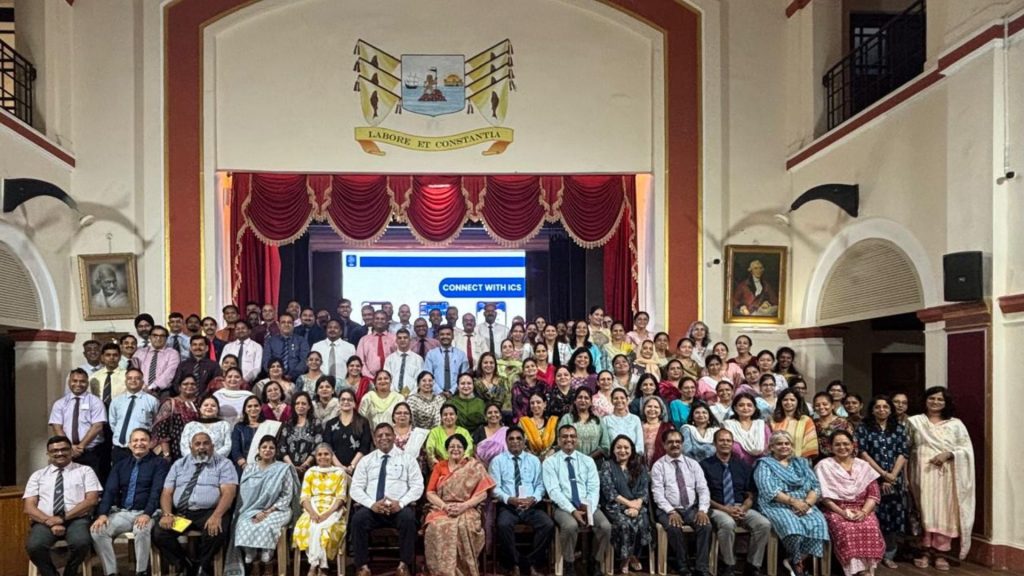Insights from professional development sessions by Dr. Amrita Dass at La Martiniere College, Lucknow

Today’s classrooms are preparing students not just for exams, but for life. In my ‘I Teach, Therefore I Am’ sessions at La Martiniere College, Lucknow, I invited teachers to explore how they can support their students’ career journeys with empathy, awareness, and purpose.
As part of the session, participating teachers were asked to respond to two insightful questions:
- What do you teach?
- What is your teaching philosophy?
The responses showed not just what they teach, but how much they care.
Beyond Syllabus. Beyond the Classroom.
When asked what they teach, they answered from the heart.
Yes, they did mention the obvious: math, chemistry, history and geography.
But most went deeper.
They spoke of teaching respect, empathy, responsibility, citizenship, and discipline.
They mentioned nurturing confidence, self-worth, and emotional intelligence.
One teacher called it “the art of helping children believe in themselves.”
Sakshi Batra, a dance teacher, explained how her classes aim to develop children’s spiritual quotient — helping them connect with themselves through movement and expression.
Ritin Sharma emphasized teaching values and character, seeing education as a moral and emotional journey.
Pre-primary teachers had their own lens. For them, play wasn’t optional — it was central.
Priyanka Sonee championed play-based learning, calling it “a child’s natural way of understanding the world.”
Senior school educators spoke of preparing students for the real world.
They highlighted AI skills, legal awareness, technological fluency, purpose, and introspection — themes rarely found in conventional lesson plans, but crucial for life beyond school.
One teacher noted: “It’s not just about what they know — it’s about how they live.”
And everywhere, across age groups and subjects, one thing stood out:
Soft skills and character building were universally recognised.
A Teaching Philosophy That Puts Students First
When it came to their teaching philosophies, the teachers didn’t speak in abstract theories.
They spoke of students as individuals. Of classrooms as living, breathing spaces.
Many emphasised dialogue and discussion.
“Let them question everything,” said one teacher.
Another added, “Let them challenge authority — that’s how they learn to think.”
Honey Dhawan advocated for encouraging skepticism and independent thought.
For her, the goal isn’t obedience — it’s discernment.
Supriya Chopra highlighted something often overlooked: emotional safety.
“If students don’t feel safe,” she said, “they won’t feel free to learn.”
Teachers also stressed the importance of student voice and agency.
Students should be active participants, not passive recipients.
They should be allowed to make mistakes, take risks, and grow from them.
Mahima Nathaniel spoke passionately about the need for individualised attention.
“Each child learns differently. We must meet them where they are.”
There was a call for experiential learning, hands-on activities, and creative methods.
Subjects should be taught in interesting, engaging ways — not reduced to rote learning.
From Training to Transformation
The participatory sessions were a mirror – that helped teachers see their deeper role — as mentors, guides, and changemakers.
It was also a bridge — connecting early childhood educators, subject experts, co-curricular mentors, and senior faculty in shared purpose. Despite their differences in age group and subject matter, their values aligned: Empathy, agency, curiosity, and courage.
In a world racing toward automation and artificial intelligence, these teachers are doubling down on what machines can’t replicate — humanity.
The Heart of the Matter
The workshop ended, but its echo continues.
Teachers left not just with techniques — but with a renewed sense of mission.
They were reminded that while they may teach letters and laws, theories and themes,
they also teach love, laughter, resilience, and truth.
That education is not about feeding data — it’s about kindling purpose.
And perhaps most importantly: that every student, no matter how young or old, deserves to be heard — and believed in.
